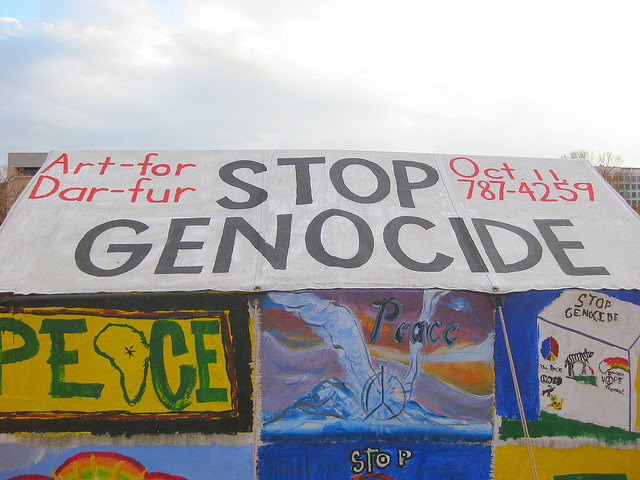
In the decades since the Holocaust, the international community created mechanisms like the 1951 Genocide Convention in order to ensure that the world would “never again” experience such tragedy. Even so, genocide and mass violence continue to occur across the world. Recent AP reports provide even more evidence of a genocide in Myanmar, yet military response and global governance are again lacking. In a recent article in The Washington Post, Aliza Luft addresses these failings and suggests that economic tactics may succeed where others have failed.
Many factors can influence violent behavior, like prejudice and propaganda, but for many who commit violence, economic considerations are essential. For example, some governments use poverty to motivate civilians to engage in violence, offering resources in exchange for participation. According to Luft:
“Thus, one strategy for intervention is to even the economic playing field: to lower the capital of the génocidaires while increasing that of their potential recruits. Responses can include targeted financial measures such as asset freezes and economic divestment from major firms that help fund genocidal governments. Additionally, non-governmental relief efforts might focus not only on food, medicine, and housing for the displaced, but also on creating economic opportunities to reduce the potential for recruitment by genocidal authorities.”
Economic strategies can take many forms, including organizations that guide companies towards pro-human rights policy, as well as online campaigns that have dissuaded companies from working with genocidal regimes. Luft argues that anyone can aid in genocide prevention through personal spending choices, outreach, and activism. She suggests civilians use financial strategies that may influence politics and policy:
“To deepen the link between investment or operations abroad and commitments to human rights, civilians can emply boycotts and social media campaigns to pressure these companies over their complicity in genocide. Research has shown that economic and reputational concerns can motivate a company to change its policies. It is time to mobilize on behalf of the Rohingya, and to target businesses whose taxes and revenue fund violence.”

Comments